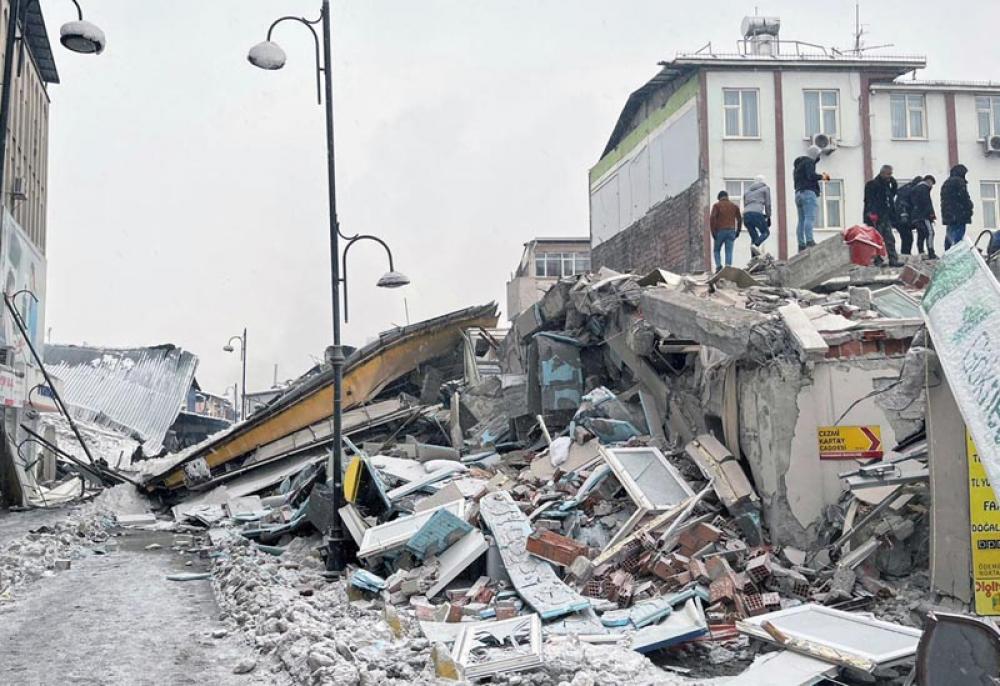Just Earth News | @justearthnews | 08 Feb 2023, 05:59 am Print

Image credit: Xinhua/UNI
Ankara: Turkish President Recep Tayyip Erdogan said Wednesday during his visit to the worst-hit region after a massive earthquake that the death toll in his country has surged to 8,574, bringing the total fatalities with neighboring Syria to over 11,000.
According to local authorities and rescuers, more than 45,000 people in the two countries have been injured due to the quake on Monday.
The full scale of the multiple earthquake disaster in Turkey and Syria is still unfolding, UN humanitarians said on Tuesday, as they stressed the critical need to step up search and rescue efforts for victims and ensure that lifesaving aid reaches all those who need it.
Although Syria is in crisis after 13 years of war, there is particular concern for all those affected by Monday’s disaster who live in opposition-held areas in the northwest of the country, often after being forced to flee their homes multiple times because of heavy fighting.
“It was already an emergency situation across northwest Syria where four million people receive humanitarian support. Communities there are grappling with cholera outbreak, a brutal winter and of course ongoing conflict,” Mr. Elder explained.
Echoing those concerns, the UN refugee agency, UNHCR, said that the situation is tragic in the 10 Turkish provinces affected by the earthquakes.
In some of these affected provinces in Türkiye, 50 per cent of people are now refugees, while in Syria, UNHCR spokesperson Matthew Saltmarsh described the earthquake emergency as a “hammer blow” for displaced populations who have no work and whose savings have been exhausted. “We’re in the depths of winter, we’ve been seeing snowstorms and of course, you know, the war has been going on for over a decade,” he said.
As international search and rescue teams arrive in the region, coordinated by OCHA, spokesperson Jens Laerke stressed that “there’s a window of about seven days…where we’ll find alive survivors. It can happen later, but it’s really critical that these teams get out there as soon as possible.”
Aside from the material damage to roads and public infrastructure which has made the work of emergency teams more difficult, Syria’s dire economic situation has also slowed the relief effort.
“Search and rescue efforts are currently hampered by lack of equipment to remove debris,” said Tommaso Della Longa, spokesperson for the International Federation of Red Cross and Red Crescent Societies (IFRC). “There is a severe lack of fuel all over Syria and this has hampered operational heavy machinery, transport of personnel and emergency ambulance services.”
- Same price, smarter result: Anthropic drops major AI surprise
- Meta, NVIDIA announce long-term infrastructure partnership. Key details inside
- No one above the law: UN experts call for action over Epstein Files
- Teen with loaded shotgun races toward US Capitol — Arrested in dramatic standoff
- Power shift in Dhaka! Tarique Rahman takes oath as Bangladesh PM





-1763561110.jpg)
